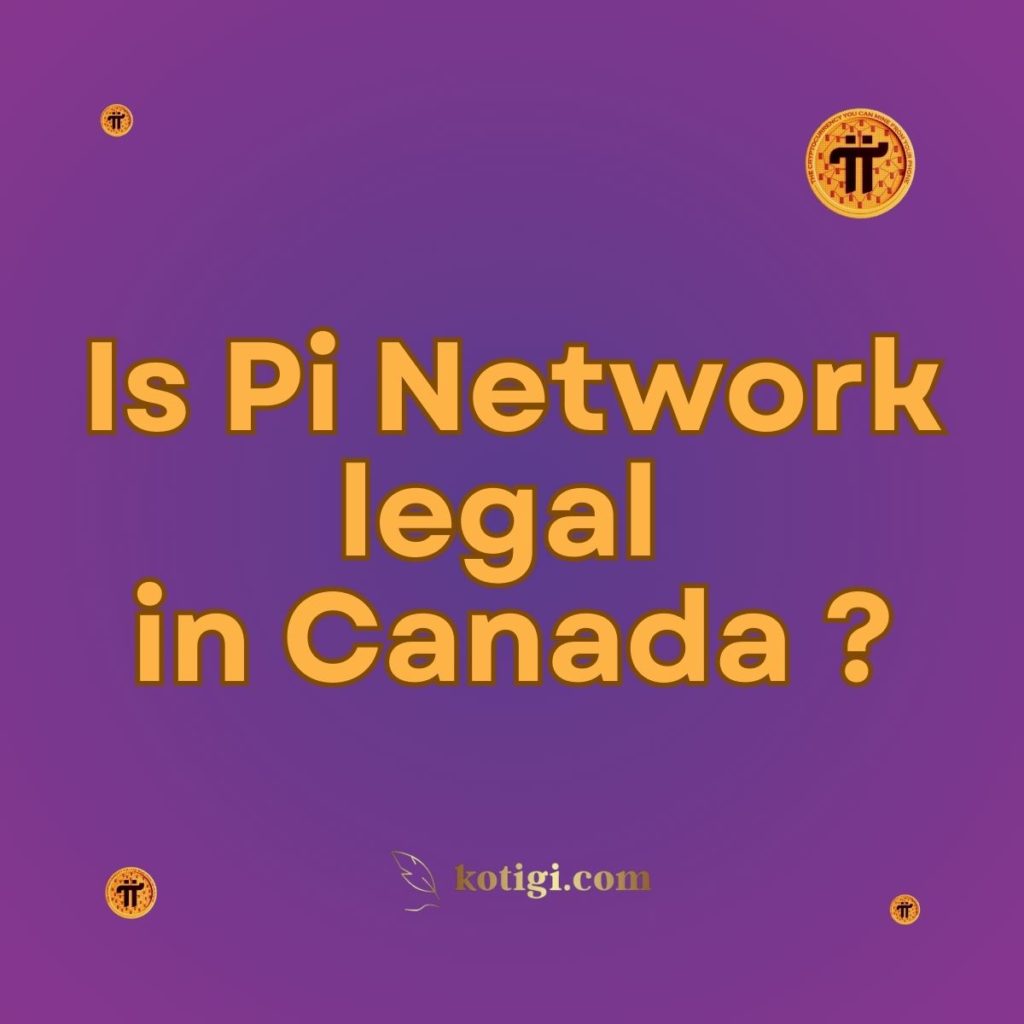
Is Pi Network legal in Canada?
The legality of Pi Network in Canada is shaped by the country’s regulatory framework for cryptocurrencies and digital assets. Here’s a detailed overview of how Pi Network fits into the Canadian legal landscape:
1. Cryptocurrency Regulation in Canada
1.1. General Legality:
Cryptocurrencies, including Pi Network, are generally legal in Canada. The country has a well-established regulatory framework that applies to various aspects of cryptocurrency operations. While Pi Network is not an exchange or a trading platform, its activities could still fall under certain regulations, depending on how the network evolves.
1.2. Regulatory Bodies:
In Canada, the regulation of cryptocurrencies is primarily overseen by the Canadian Securities Administrators (CSA) and the Financial Transactions and Reports Analysis Centre of Canada (FINTRAC). The CSA focuses on securities laws, while FINTRAC handles anti-money laundering (AML) and counter-terrorist financing (CTF) regulations.
2. Securities Regulation
2.1. Securities Classification:
The CSA has issued guidance on when cryptocurrencies may be considered securities. If Pi Network’s tokens are classified as securities, the network would need to comply with Canadian securities laws. This could involve registering the tokens, providing disclosure documents to investors, and adhering to specific trading rules.
2.2. Token Offerings:
If Pi Network decides to conduct an Initial Coin Offering (ICO) or any form of token sale in Canada, it must ensure compliance with securities regulations. This includes determining whether the tokens are securities and, if so, meeting the requirements set by the CSA.
3. Anti-Money Laundering (AML) and Know Your Customer (KYC) Requirements
3.1. AML Compliance:
Canada has strict AML regulations that apply to cryptocurrency-related businesses. Pi Network must implement procedures to prevent money laundering and terrorist financing, which includes conducting KYC checks to verify the identities of its users. If Pi Network engages in activities like facilitating the exchange or transfer of Pi coins, it may be subject to FINTRAC’s AML regulations.
3.2. Registration with FINTRAC:
If Pi Network’s activities are classified as money services, it may need to register as a Money Services Business (MSB) with FINTRAC. This registration would require Pi Network to report certain transactions and comply with ongoing regulatory obligations.
4. Consumer Protection and Legal Considerations
4.1. Transparency and Fairness:
Canada has robust consumer protection laws that apply to all businesses, including those in the cryptocurrency space. Pi Network must ensure transparency in its operations, providing clear and accurate information to its users. Misleading or deceptive practices could lead to legal actions by Canadian authorities.
4.2. Legal Risks and Liabilities:
To operate legally in Canada, Pi Network must manage potential legal risks, including regulatory compliance and consumer protection. Seeking legal advice and developing a comprehensive compliance strategy will be essential for mitigating these risks.
5. Provincial Regulations
5.1. Varying Provincial Laws:
In Canada, financial regulations can vary by province. While the federal government sets overarching guidelines, provinces may have their own rules governing cryptocurrency activities. Pi Network must ensure compliance with both federal and provincial regulations, particularly in provinces like Ontario, which has stricter rules.
5.2. Provincial Securities Regulators:
Each province in Canada has its own securities regulator. Depending on where Pi Network operates, it may need to interact with these regulators to ensure compliance with local securities laws.
6. Taxation of Cryptocurrency
6.1. Tax Obligations:
In Canada, cryptocurrencies are treated as commodities for tax purposes. This means that transactions involving Pi coins may be subject to capital gains tax or business income tax, depending on the nature of the transaction. Pi Network users in Canada must be aware of their tax obligations and report their cryptocurrency activities accordingly.
6.2. Reporting Requirements:
The Canada Revenue Agency (CRA) requires individuals and businesses to report any income earned from cryptocurrency transactions. Pi Network should ensure that its users are informed about these requirements and the potential tax implications of their activities on the platform.
Conclusion
Pi Network is generally legal in Canada, provided it adheres to the regulatory requirements set by the CSA, FINTRAC, and provincial regulators. Compliance with securities laws, AML/KYC regulations, and consumer protection laws is essential for Pi Network to operate legally in Canada. As the regulatory environment continues to evolve, Pi Network must stay informed and compliant with all applicable laws to maintain its legal status and build trust with users in Canada.




